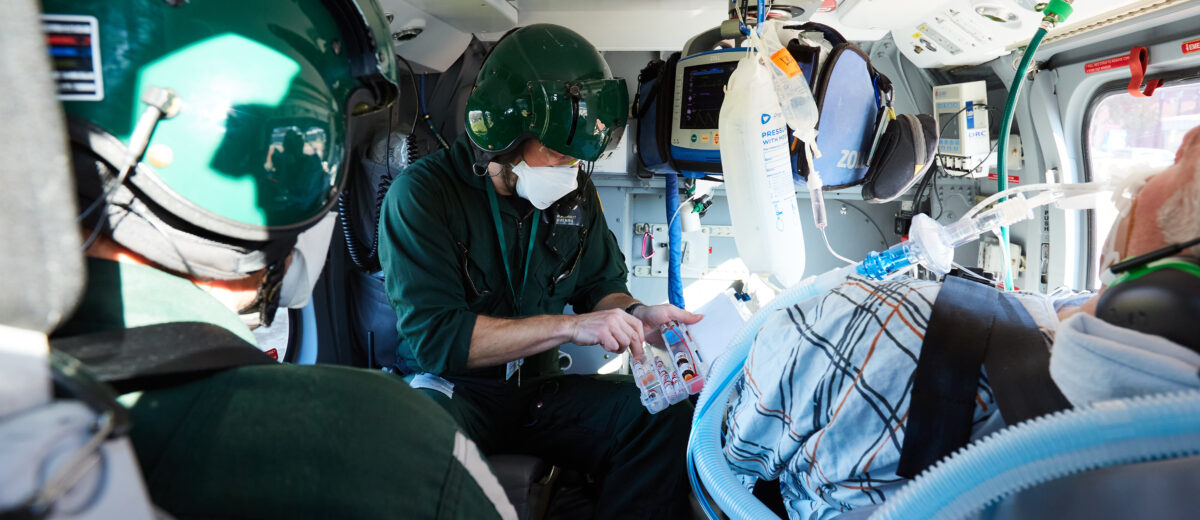Critical Care
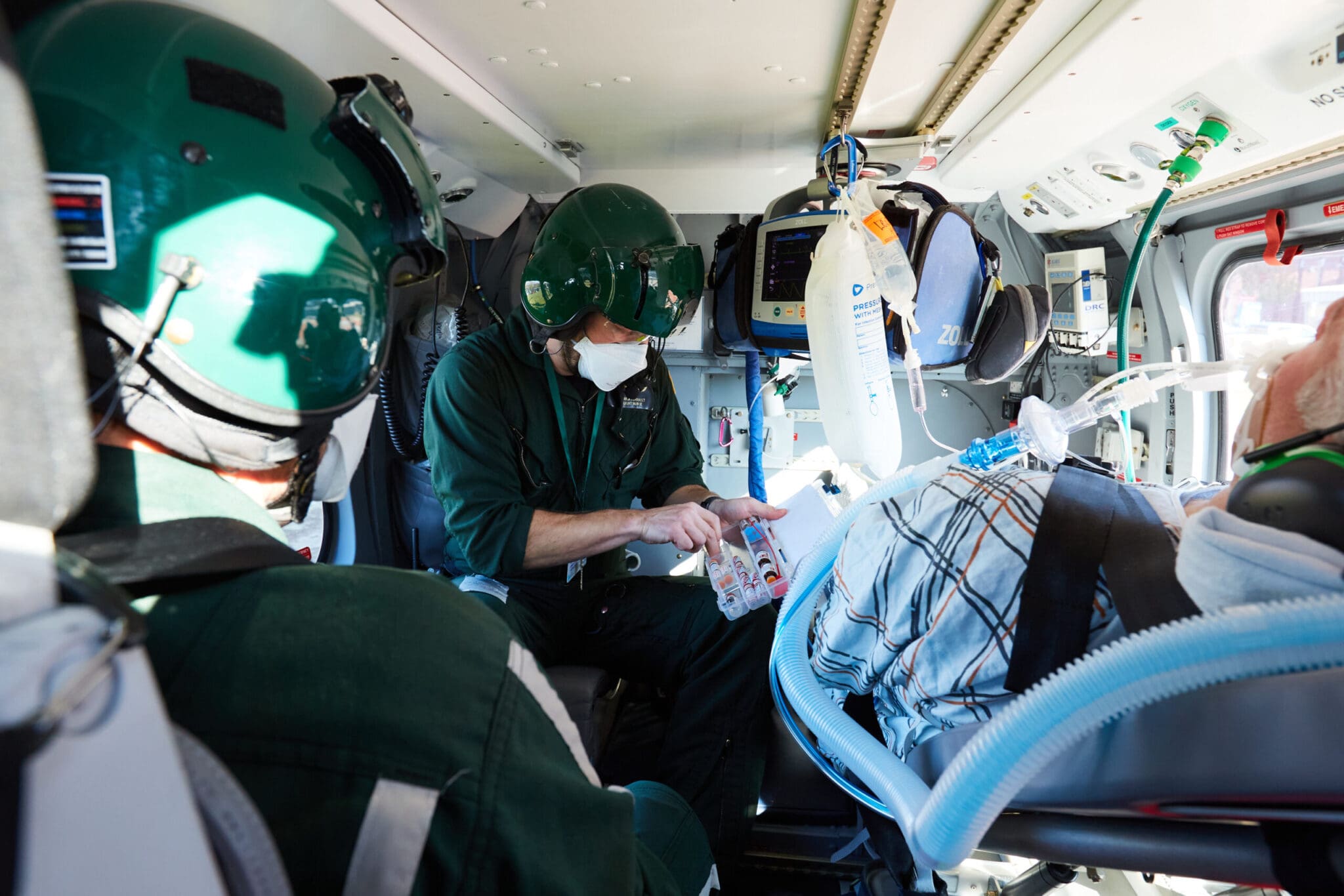
- Home
- /
- Our Services
- /
- Critical Care
Our mission is to ensure people everywhere in Maine have access to critical emergency care when they need it and where they need it. LifeFlight is simultaneously part of Maine’s EMS system and part of Maine’s hospital system.
Maine’s emergency care system, comprised of EMS, fire/rescue, and hospital emergency departments, effectively manages the vast majority of emergency patients. However, a cohort of several thousand patients a year needs high-level care, similar to that of a major medical center ICU, delivered directly to the point of need, whether at an emergency scene, a health clinic, or a community hospital.
Based at hospitals, LifeFlight is a mobile intensive care system staffed by specially trained critical care nurses and paramedics with contemporaneous physician support. LifeFlight transports are equipped with the medical technology of an ICU, including invasive cardiac and neuromonitoring, airway management, multimode ventilators, multiple infusion pumps with a hospital pharmacy, bedside laboratory, ultrasound, blood, plasma, and a full complement of specialty resuscitation equipment to manage each patient, regardless of age or medical issue.
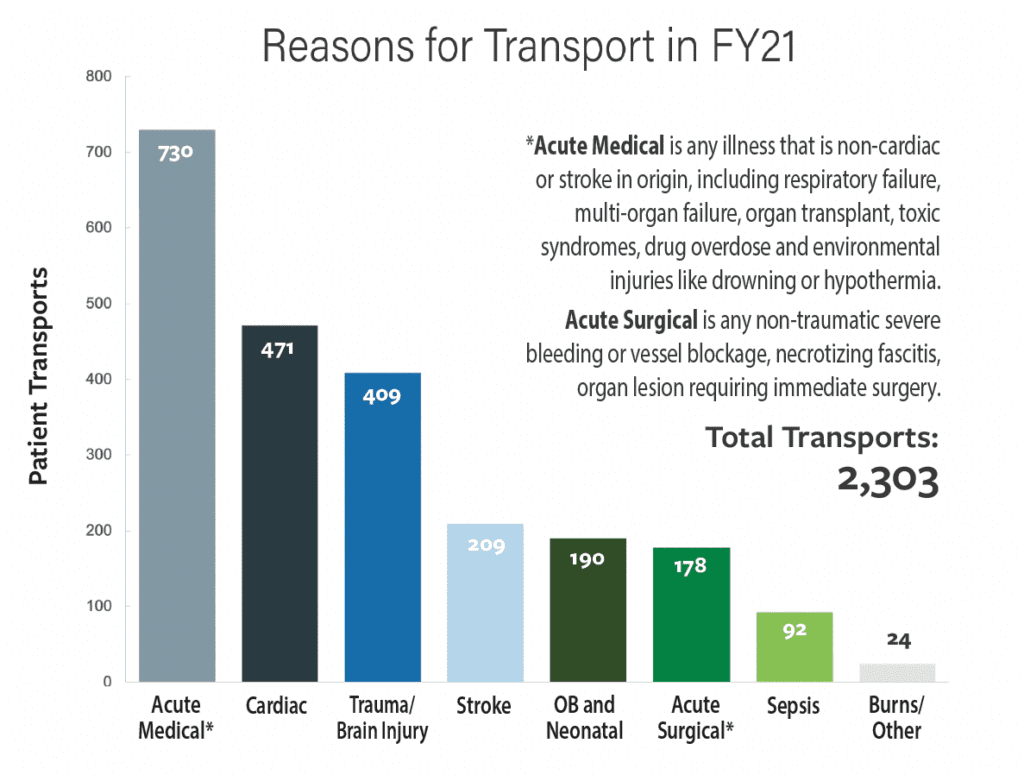
LifeFlight provides specialty care for premature newborns using neonatal transporters. Specialized support is available for cardiac patients, including intra-aortic balloon pumps, ventricular assist and tandem heart devices, and Impellas. Patients on full cardiopulmonary bypass can receive extracorporeal membrane oxygenation (ECMO). Each LifeFlight team and vehicle are equipped with $500,000 of advanced medical equipment on board and carry blood and specialized medications.
LifeFlight is fully accredited by the Commission for the Accreditation of Medical Transport Systems.
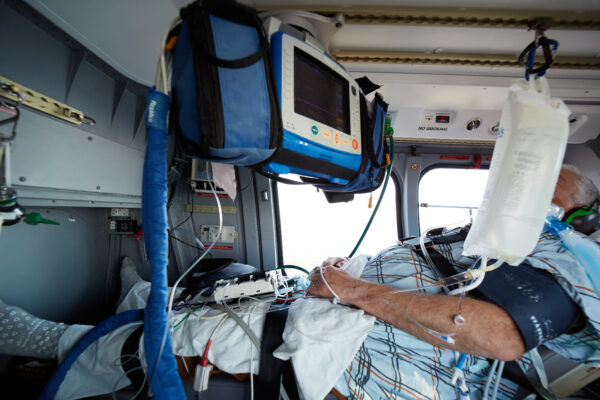
Zoll Critical Care Hemodynamic and Cardiac Monitors, Pacers, and Defibrillators
Our Zoll critical care monitors provide noninvasive (outside the body) and invasive (in-dwelling catheters) modes of obtaining vital information—information that helps us diagnose and respond to a patient’s condition minute to minute. In addition to being able to monitor cardiac rhythms, provide 12-lead cardiograms, and monitor blood pressures, these advanced instruments help us monitor and respond to a patient’s oxygen and respiratory status, temperature, and perfusion in the heart, lungs, and brain. They have been specifically designed for air medical transport—with special attention given to vibration, weight, and ease of use in challenging field situations—and for every age of patient.
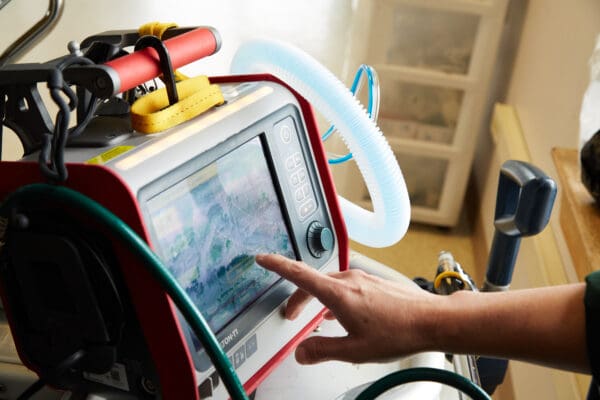
Ventilators
Managing acute respiratory failure in COVID patients required LifeFlight to replace all our ventilators with new, state-of-the-art mobile technology by Hamilton. These newly-available critical care ventilators provide hospital-quality respiratory therapy to meet the airway needs of literally virtually every age of patient, whether using noninvasive positive airway pressure support or, for intubated patients, volume and pressure ventilation.
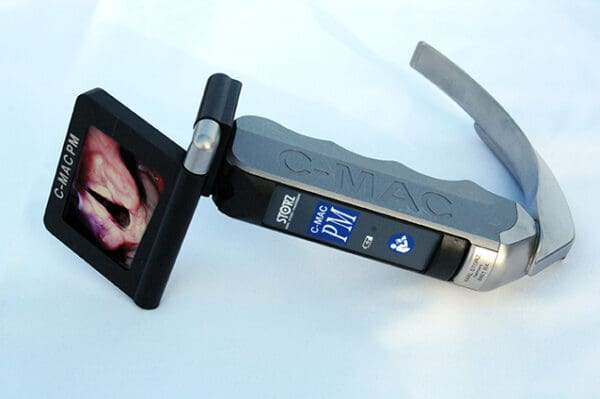
Video Laryngoscopes for Airway Management
When a critically ill patient is unable to maintain their airway, the placement of a breathing tube or “intubating” to take over the patient’s breathing is essential. As a critical care service, LifeFlight is able, using medications similar to anesthesia in the hospital to emergently intubate patients who are breathing but unable to maintain their airway due to injury, illness, or respiratory failure. LifeFlight uses state-of-the-art CMAC video laryngoscopes to facilitate rapid, medicine-assisted (like anesthesia in a hospital) emergency intubation, after which the patient is connected to our ventilator.
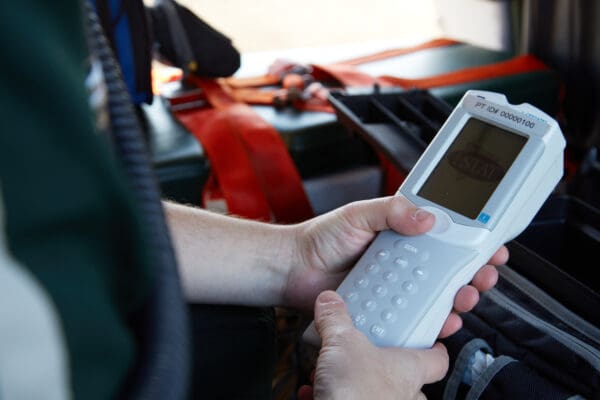
Portable, Hand-held Laboratory
The i-STAT System used by LifeFlight is an advanced, handheld portable laboratory providing real-time, hospital-lab blood gas reports within minutes. This allows the crew to perform blood tests while in flight and use the results to adjust the treatment therapies and care given to the patient.
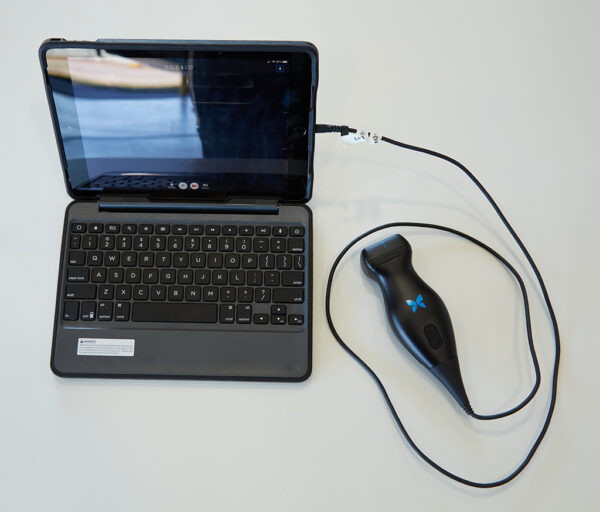
Ultrasound
Imaging for rapid diagnosis and support is a cornerstone of critical care medicine. In the field, LifeFlight does this through portable ultrasound, allowing us to assess cardiac, pulmonary, and bleeding emergencies as well as helping us place invasive monitoring lines and difficult intravenous lines (IVs).
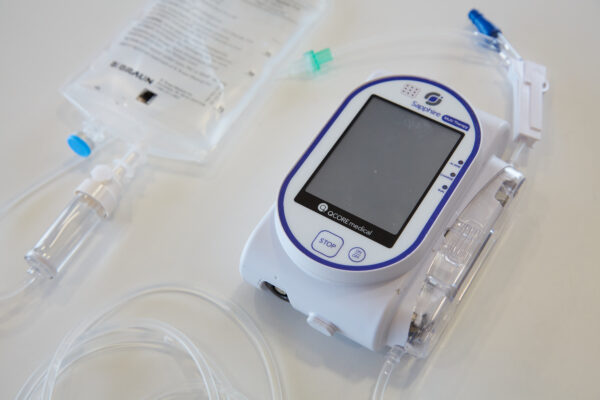
Medications and Infusion Pumps
Carrying a full set of intensive care unit (ICU) medications helps LifeFlight provide advanced resuscitation at the emergency scene or hospital as well as care consistent with an ICU during transport. LifeFlight’s critically ill cardiac patients often require four, five, or more intravenous (IV) lines for fluids and medications. LifeFlight’s uses Sapphire, state-of-the-art infusion pumps, allowing the LifeFlight crew to manage multiple different IV-infusing medications. While the aircraft is standardly configured with six pumps, LifeFlight teams can add additional pumps for patients with some patients needing up to 14 infusing medications while in transport. The pumps have internal medication libraries, improving safety and care. For our smallest patients, we use specialized syringe pumps to maintain accuracy of infusing medications.
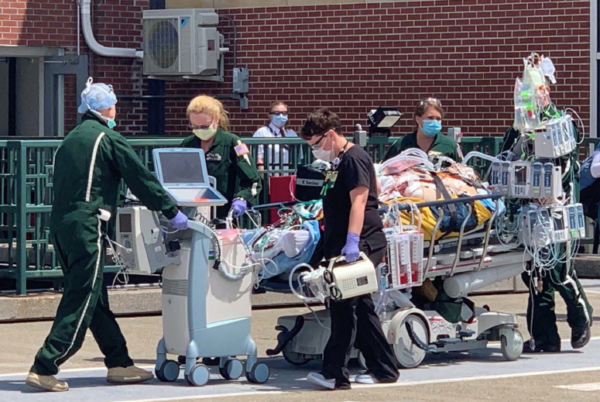
Extra-corporeal Membrane Oxygenation (ECMO)
When a critically ill patient needs maximal cardiopulmonary life support, the cardiac surgeons connect the patient to ECMO, a full cardiopulmonary bypass. The technology, operated by the medical team during transport, provides all the support to the heart as well as to the patient’s lungs, pumping the patient’s blood outside of the body to oxygenate and exchange gases.
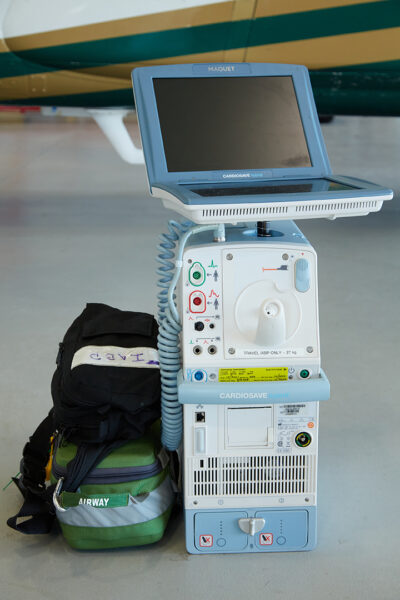
Intra-aortic Balloon Pumps and Cardiac Assist Devices
When a patient is suffering from cardiogenic shock and their heart is not pumping blood effectively, specialist physicians use a variety of invasive cardiac assist devices to bridge the patient to additional therapies or even to a heart transplant. One of those is an intra-aortic balloon pump (IABP). The cardiac surgeon implants a balloon in the aorta to improve blood flow; the LifeFlight team then takes over care for transport. Each LifeFlight base is equipped with an IABP so that hospitals can send their patients for transport without sending along their own IABP, so it can remain available for their next cardiac patient.
In addition, the LifeFlight teams also provide transport for patients in whom the cardiac surgeon has placed a TandemHeart© or Impella© left ventricular assist device to support blood flow.
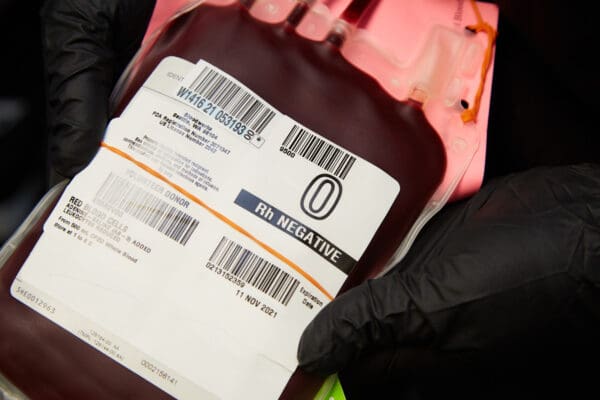
Donor Blood
Universal donor blood and plasma are carried on every flight. Initiation of blood therapy is a hospital scope of practice, so LifeFlight is critical for patients who have suffered severe internal or external bleeding or have medical forms of anemia. LifeFlight has carried blood since its inception and is the only EMS service in the state allowed to initiate blood and plasma therapies. We also support our blood banks with blood drives every year. Keep track of our social media for our blood drives—your donation will save lives.
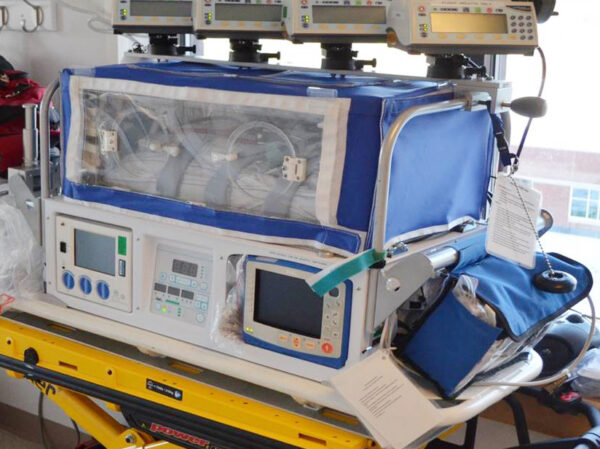
Newborn Isolettes
LifeFlight has invested in specialized neonatal transport isolette systems for premature infants and for newborns that need care in a neonatal intensive care unit (NICU) at EMMC, MMC, or one of the major medical centers in Boston. These advanced systems form an entire miniature ICU for the smallest patients. Each unit has special ventilators, monitors, and infusion pumps sized for small infants.
